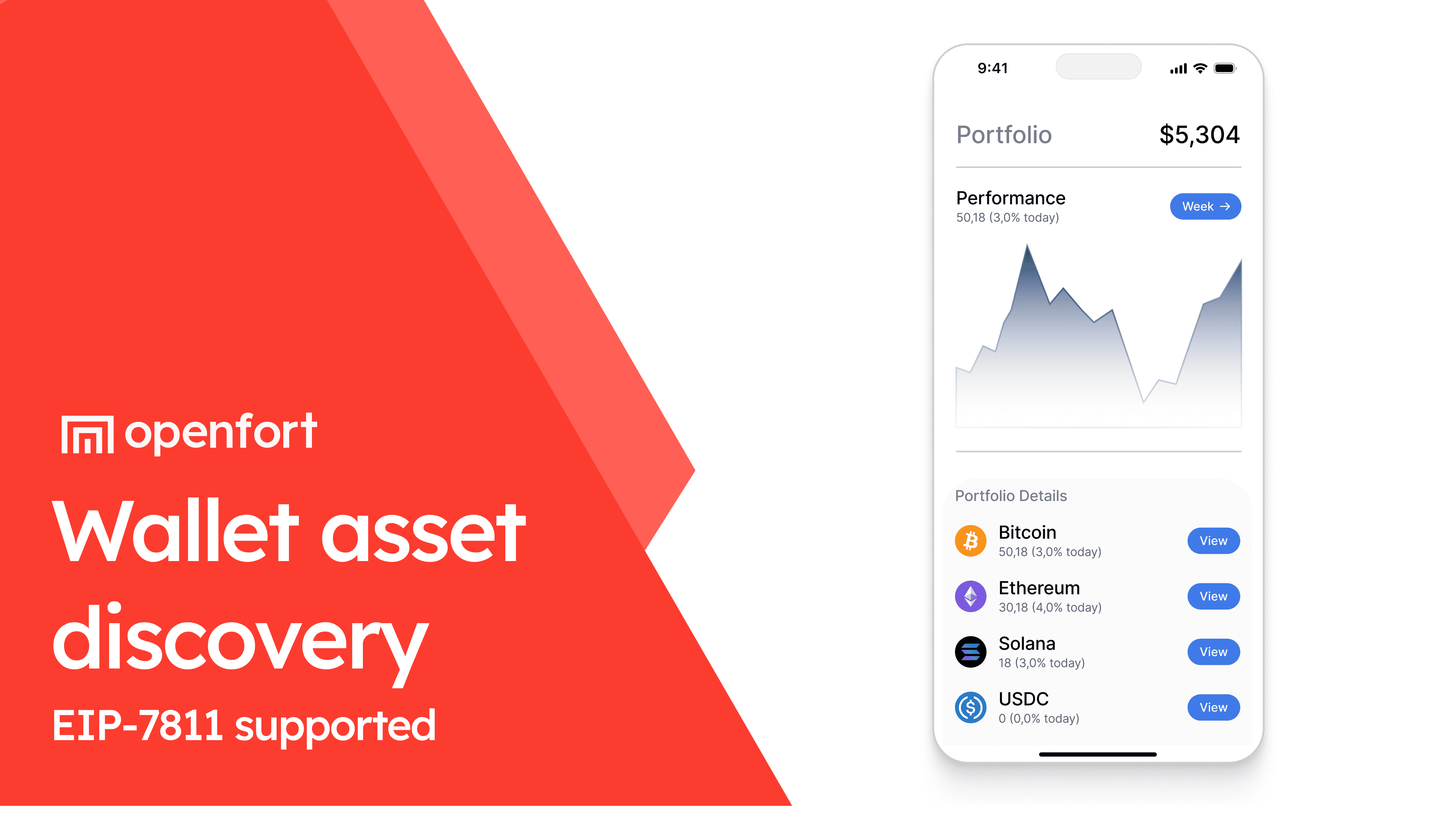
Understanding exactly what assets a user owns across multiple chains is a common challenge for on-chain applications. ERC-7811 support in Openfort simplifies this by providing a standardized method for asset discovery.
What is Wallet Asset Discovery (ERC-7811)?
Wallet Asset Discovery, defined under the ERC-7811 standard, is a specialized JSON-RPC method (wallet_getAssets) that allows an application to request a complete list of a user’s assets directly from their wallet. Instead of developers needing to maintain custom indexers or manually scan every blockchain for balances, the wallet provides a structured and accurate view of all held assets—including native tokens (ETH, MATIC), ERC-20s, and NFTs (ERC-721/1155). By adopting this standard, Openfort ensures that developers can fetch multi-chain balances with a single call, reducing infrastructure complexity and preventing "missing balance" bugs in the user interface.
If you’re building with embedded wallets today, asset discovery is probably a mess: Custom token lists per chain, indexers to maintain, partial balances depending on which RPC you hit, etc.
Most of this isn’t a product problem. It’s a standards problem. Today, we’re aligning Openfort with the ecosystem’s answer to that: ERC-7811: Wallet Asset Discovery
From ad-hoc indexers to a standard call
Until now, most apps checked balances by: Calling RPCs chain by chain, inferring assets from onchain activity or patching gaps with allowlists, heuristics, or 3rd-party indexers.
It “worked,” but:
- You only see what’s obvious on a specific chain.
- You miss assets that wallets know about but that aren’t easily discoverable from a single node.
- Every team reinvents the same infra.
ERC-7811 proposes a fix: a standard JSON-RPC method — wallet_getAssets — that lets wallets share a user’s assets with dapps across supported chains and asset types, in a structured way.
What ERC-7811 does
At its core, ERC-7811 introduces: wallet_getAssets → “Wallet, tell this app what this user owns.” It supports: native assets (e.g. ETH), ERC-20 tokens (e.g. USDC), ERC-721, and extensibility for future asset types.
Instead of guessing or scraping, apps get a clean, wallet-sourced view of a user’s assets in a consistent format. No proprietary API. No one-off JSON shape. An open standard implementations can align on.
Helping builders
If you’re maintaining your own asset discovery stack today, ERC-7811 support in Openfort means:
- Less glue code. No more stitching multiple APIs per chain just to show balances.
- Fewer edge cases. Fewer “this token isn’t showing” bugs and manual hotfixes.
- Cleaner abstractions. Treat
wallet_getAssetsas the canonical read for embedded wallet assets. - Future compatibility. As the ERC-7811 standard evolves and adoption grows, your app already speaks the right language.
Read our docs to implement it
